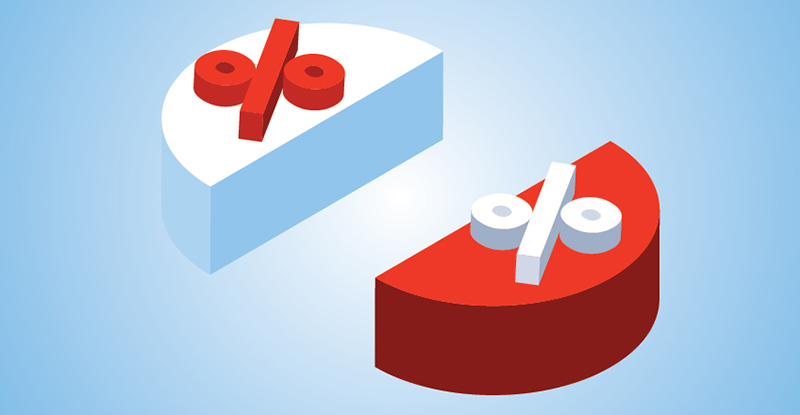
“But I’m not retiring until years from now.”
“I’m focused on growing my business.”
“It’s still a startup!”
Entrepreneurs who don’t think about how their business is valued until the time comes to sell are missing an opportunity. They could be implementing strategies today that could result in a higher business value in the future. Here are five valuation tips to keep in mind, even if it’s not time to sell your business yet.
Understand that value-enhancing strategies take time
Businesses that are profitable, and will continue to be in the foreseeable future, are typically valued based on expected cash flow. Entrepreneurs should be able to increase the value of their business by finding ways to increase cash flow, and to reduce the risk of not attaining those cash flows. Strategies to consider include the following:
- Cutting out unnecessary expenses;
- Putting a strong management team in place;
- Reducing dependence on a few, specific customers or suppliers;
- Updating equipment and technology; and
- Ensuring that financial information is current and adequate.
It can take time to implement value-enhancing strategies: building a management team, for example, can take years. The owner of a mid-sized company had engaged a professional accountant to assist him in preparing the business for sale. The owner prided himself on the fact that his management team had been with him for well over twenty years. A prospective buyer, however, viewed the management team as a potential risk – they were all close to retirement age.
Don’t make goodwill personal
A significant component of the value of a viable business is often its goodwill – the “magic” of the products, services, location, and people that make the business what it is. An intangible rather than a “hard” asset, goodwill only has value to a prospective buyer if it is attached to the business. If the goodwill is personal — attributable to the present owner’s reputation or skills — when the present owner leaves, so may the goodwill.
To help ensure that the goodwill stays with the business, strive to make the owner dispensable. Consider putting in place strong managers, documenting systems and developing processes that minimize reliance on specific individuals.
One area where personal goodwill can come into play is in a company’s name. When choosing a name for your business, consider the fact that calling it John Smith Automotive, for example, could be a deterrent to future buyers, unless they happen to have the same name. If your business is already operating with a personal name consider rebranding.
Be investor ready
If you need capital to grow your business, knowing how much your business is worth can make the difference between closing a deal or not. On the reality TV show Dragon’s Den, entrepreneurs pitch their business to the “Dragons,” a panel of successful investors. If you’ve watched the show, you’ll likely have heard the Dragons’ all-too-frequent lament: “You’ve got the value all wrong.” Many an entrepreneur has walked away empty-handed because they overvalued their business. Even worse, other times they’ve undervalued it and given up more equity than necessary.
Find your special purchasers
Certain buyers may be willing to pay more for a business than others. These “special purchasers” can envision higher revenues, lower costs, or some other strategic benefit from buying a specific business. Your special purchasers may include competitors, suppliers, customers, and employees. To identify potential special purchasers, consider your business’s existing relationships. As well, look at where you can expand your business networks. Participating in industry associations can connect you with new or want-to-be entrants to your market. When the time comes to sell your business, established relationships with special purchasers may prove valuable.
An example of a special purchaser transaction is Canadian food retailer Metro Inc.’s recent purchase of a majority interest in startup Miss Fresh. Founded in 2015, Miss Fresh delivers ready-to-cook meal kits. Metro had already been offering Miss Fresh meal kits in its stores since last August. Both companies benefited from the purchase.
“The in-store pickup reduces the delivery costs of Miss Fresh, but it also increases traffic into the Metro stores,” said Metro chief executive officer Eric La Fleche.
Recognize that timing is everything
Lastly, timing can have a significant impact on the value of a business in several ways. Cash flow methods of business valuation incorporate the desired rates of return of investors and buyers, and general economic conditions play a role in determining an acceptable rate or return. Investors may have less appetite for risk if the economic outlook is uncertain, or if financial markets are in turmoil, as was the case in 2008 when potential buyers adopted a wait-and–see attitude. The opposite applies when the economy is booming. Financing may be more readily available during good times, making it easier to buy a business, and attracting more buyers into the market.
Developments to your industry may also have an impact on the value of your business. These can include changes to taxes, legislation, technology, climate change, or competitors entering the field. For example, the “sharing economy” is having a big impact on hotels through Airbnb, and on taxis through Uber.
Owners should also keep in mind the number of businesses expected to change hands in the future – potentially 500,000 in the next decade in Canada alone. If a number of similar businesses come on the market at the same time, selling prices may suffer.
That being said, internal factors are as important as external ones when it comes to timing the sale of your business. Naturally, it makes sense to sell a business after a good year than after a poor one. Having a history of strong cash flow will lend credibility to forecasts of strong cash flow in the future. As well, it may be difficult to convince buyers that a bad year is an anomaly, and not the start of a downward trend.
Taking the opportunity to learn how businesses are valued can help you increase the value of your own. Not only can this put more money in your pocket, planning your exit strategy from your business – even if you aren’t ready to sell, just makes good business sense.
Liisa Atva is the author of The Ask: How Much Is a Small Business Worth? A Chartered Professional Accountant and Chartered Business Valuator, Liisa’s work has appeared in The Globe and Mail, The Vancouver Sun, Huffington Post, and The Journal of Business Valuation.



